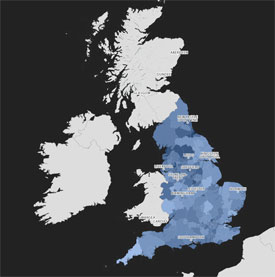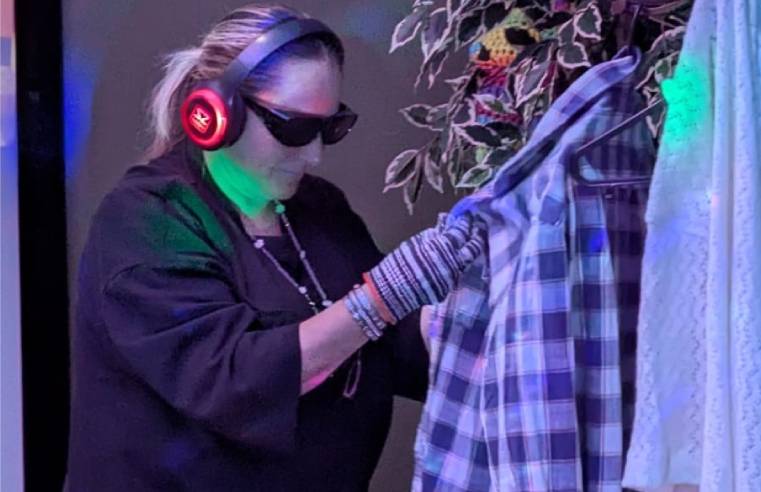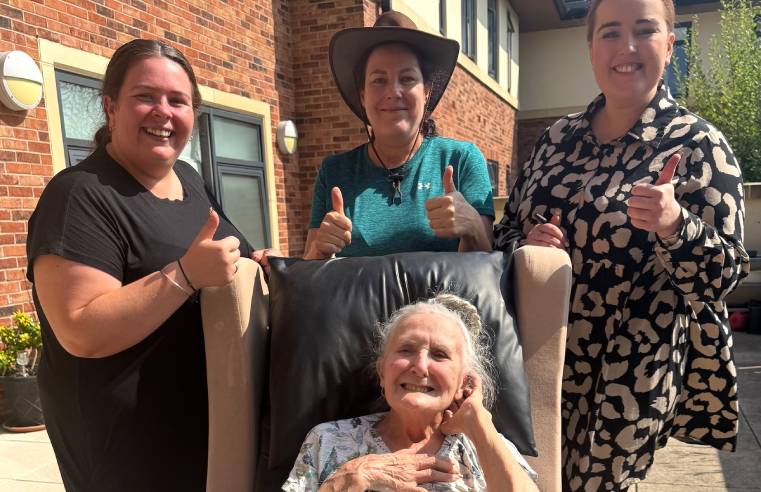Dementia ‘atlas’ reveals care disparities across England

Published on 06/07/2016
The publication of an online ‘dementia atlas’ today has revealed significant variations in the provision and quality of care for those with dementia across England.
The area where dementia sufferers live has a huge impact on the quality of care they receive the atlas has shown, with huge variations in emergency hospital admissions and end of life care.
The atlas, published by the Department of Health, shows the best and worst performing areas for dementia prevention and care in the country.
With 676,000 people in England living with dementia, Secretary of State Jeremy Hunt said he hopes the publication of today’s figures will help to ‘drive improvements across the country’.
The Secretary of State for Health said: “We have made great strides in improving diagnosis rates, investing in research and creating the first dementia friendly communities, but we still have much further to go to promise everyone that they will be able to live well with the condition.”
The atlas groups the data in the following categories diagnosing well, supporting well, living well and dying well, in line with NHS England’s dementia pathway created with the aim of ensuring quality care from diagnosis through to end of life care.
The publication of the dementia atlas comes at the same time as actress Carey Mulligan is appointed as the first UK Global Dementia friends Ambassador by Alzheimer’s Society and Jeremy Hunt.
In her new role the actress, who recently starred in Far from the Madding Crowd and Suffragette, aims to improve global attitudes to dementia by working closely with world leaders to improve education and reduce stigma.
Speaking about her appointment Carey said: “My Nans have dementia and I have experienced first-hand how devastating it can be. It affects everyone differently, and it’s so important that everyone affected by the condition is treated with the respect and dignity that they deserve. At the moment, there’s not nearly enough awareness and as a global society we have a duty to change that.
“The first step involves educating people and breaking down stigma – not just on our doorstep, but across the world. I’ve seen my mum doing this in her role as a Dementia Friends Champion - now I’m honoured to become the first Global Dementia Friends Ambassador and help Alzheimer’s Society and the government change global attitudes towards dementia.”
The area where dementia sufferers live has a huge impact on the quality of care they receive the atlas has shown, with huge variations in emergency hospital admissions and end of life care.
The atlas, published by the Department of Health, shows the best and worst performing areas for dementia prevention and care in the country.
With 676,000 people in England living with dementia, Secretary of State Jeremy Hunt said he hopes the publication of today’s figures will help to ‘drive improvements across the country’.
The Secretary of State for Health said: “We have made great strides in improving diagnosis rates, investing in research and creating the first dementia friendly communities, but we still have much further to go to promise everyone that they will be able to live well with the condition.”
The atlas groups the data in the following categories diagnosing well, supporting well, living well and dying well, in line with NHS England’s dementia pathway created with the aim of ensuring quality care from diagnosis through to end of life care.
The publication of the dementia atlas comes at the same time as actress Carey Mulligan is appointed as the first UK Global Dementia friends Ambassador by Alzheimer’s Society and Jeremy Hunt.
In her new role the actress, who recently starred in Far from the Madding Crowd and Suffragette, aims to improve global attitudes to dementia by working closely with world leaders to improve education and reduce stigma.
Speaking about her appointment Carey said: “My Nans have dementia and I have experienced first-hand how devastating it can be. It affects everyone differently, and it’s so important that everyone affected by the condition is treated with the respect and dignity that they deserve. At the moment, there’s not nearly enough awareness and as a global society we have a duty to change that.
“The first step involves educating people and breaking down stigma – not just on our doorstep, but across the world. I’ve seen my mum doing this in her role as a Dementia Friends Champion - now I’m honoured to become the first Global Dementia Friends Ambassador and help Alzheimer’s Society and the government change global attitudes towards dementia.”
Related News
Categories
- CQC ratings
- Care home news
- Care jobs
- Care planning
- Care sector awards
- Care sector events
- Care sector news
- Care staff
- Charity
- Cleaning & Hygiene
- Construction
- Dementia
- Disability
- Entertainment
- Finance
- Fitness
- Food & Drink
- Fundraising
- Furniture
- Health & Safety
- Healthcare
- Hospice & Palliative Care
- Hospitals
- Industry Comment
- Interiors
- Laundry
- Legal
- Leisure
- Medication
- Mental Health
- Mobility
- New appointments
- PPE
- Products
- Property
- Recruitment
- Relationships
- Research
- Safeguarding
- Security
- Services
- Social care
- Sustainability
- Technology
- Training
- Transport
- Uniforms
- Waste
- Wearables



















